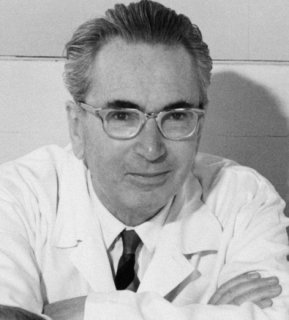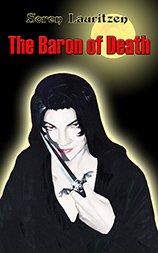The Personal History of Viktor Frankl - a Tragedy Turned on Its Head
Viktor Frankl was born in Leopoldstadt, Vienna, Austria on March 26, 1905. He studied medicine at the University of Vienna, focusing on neurology and psychiatry, and particularly the topics of depression and suicide.
He went on to become a psychiatrist and neurologist.
His early work was influenced by Alfred Adler and Sigmund Freud, but he later developed his own distinct opinions as well as his own psychotherapy which he called Logotherapy. This particular brand of psychotherapy is still taught around the world today.
As the president of Sozialistische Mittelschüler Österreich Frankl (a pan-Austrian Social Democratic youth movement for high school students) counseled students in 1924. He held a positive influence with these students during his tenure. The success rate is in the fact that, as opposed to previous years, not a single student committed suicide while he was there. This is where a lot of his personal development advice began and his self improvement ideas started to grow.
In 1933-1937, he was the head of the suicide pavilion in a Vienna hospital treating many suicidal women (around 30,000). However, because he was Jewish, in 1938, after the Nazi takeover of Austria, they banned him from the treatment of Aryan patients. Due to this, he began a private practice.
In 1940, he headed the neurological department in the Rothschild Hospital as a brain surgeon. The Rothschild Hospital during this time was one of the few still open in Vienna, which allowed Jews admittance.

In December 1941 Viktor Frankl married a lady named Tilly Grosser.
During World War II, on September 25, 1942 Viktor Frankl and his family, including his pregnant wife, were taken by force and sent to the Theresienstadt Ghetto for Jews (actually a concentration camp, because 10,000s of Jews were murdered there).
In Theresienstadt they had him working as a general practitioner. When they discovered his psychiatry skills, they had him set up a practice to help other Jews overcome the horrors of being in the Ghetto/concentration camp against their will. He headed up a watch unit for suicide for these people. Anytime someone attempted suicide he and his assistants knew about it and were there to help. Dr. Frankl life was now shaping up as tireless work to aid others.
One day in 1943 he and Leo Baeck even organized an event for the Scientific Society at Theresienstadt where the two offered a series of open lectures on topics like "Body and Soul", "Sleep and Sleep Disturbances", "How to keep my nerves healthy?" "Medical Care of the Soul", and more.
Frankl's father, Gabriel, died of pneumonia at Theresienstadt.
In 1944, Frankl and the rest of his family were transported to the Auschwitz extermination camp in Poland, where his mother, Elsa, was killed by the Nazis in the gas chambers, and his brother, Walter, died working as a slave laborer in a mine.
Frankl and his wife, Tilly, were soon separated and sent on to other extermination camps. Tilly died in the Bergen-Belsen camp, and in fact all of Frankl's family, save one sister who had escaped by emigrating to Australia, passed away while at the concentration camps.
Frankl himself was transferred to several different camps, and by April 27, 1945, he found freedom when the Allied forces invaded and liberated Europe. After the war his only living relative was his sister in Australia.
He attributed his time in the concentration camps for his philosophy of the meaning of life from even the most horrific suffering situations imaginable. His personal development ideas as well as his famed Logotherapy solidified during this time. He had indeed found a life of meaning in the midst of horrific suffering. He wrote about his account of his experiences and self-help advice in several books, the most famous of which is called "Man's Search for Meaning" (see below).
In 1945, Viktor Frankl returned to Vienna where he wrote his books and worked as a neurologist at the Vienna Polyclinic (where he stayed until 1971). He married again in 1947, a Catholic woman name Eleonore Katharina Schwindt. He had a daughter with Eleonore. He received a professorship with the University of Vienna in neurology and psychiatry. He became a visiting professor at Harvard University and throughout the remainder of his life, he received twenty-nine degrees (honorary doctorates).
Viktor Frankl has over 39 books published and is famed as one of the early and very influential personal development authors of our time. His biggest notoriety is in Logotherapy, which translates from the Greek for "word, principal, reason (I heal) therapy".
Frankl died of heart failure on September 2, 1997 at the age of 92. He left behind his wife, his daughter (who became a child psychologist), 2 granddaughters, and 3 great-grandchildren. And 39 self help books.
Books by Viktor E. Frankl
Viktor E. Frankl heralds as among the early of the self improvement authors of modern self-help books. His books offer self improvement advice and personal development tips by encouraging people to expand their thinking by encompassing the real meaning of life. His self-help ideas with Logotherapy ring throughout all of his books and essays.Viktor Frankl wrote 39 books stemming from his experience and education. They are centred around the following subjects:
• psychotherapy
• Logotherapy
• humanism
• self improvement books
• self help books
• inspirational books
• personal development books
Viktor Frankl's Messages in His Books
Because Viktor Frankl went through such a horrific ordeal during World War II, he adopted a positive life-giving attitude that not only helped him, but also helped many to go through difficult times.
His positive attitude and example displays through his entire life, his professional life as a doctor, his personal life with his family and in his many accomplishments. Even the chronicles of his life in the concentration camps are full of positive thinking gems.
Apart from his own incredibly moving personal history and his amazingly positive attitude his chief claim to fame is Logotherapy, which essentially helps others to find meaning in their life (more on that below).
Books by Viktor Frankl
• "Man's Search for Meaning: An Introduction to Logotherapy"
"Man's Search for Meaning" is the memoir of Dr. Viktor Frankl. In this book, he writes of his experiences in the four Nazi concentration camps he lived between 1942 and 1945, and describes the life of an ordinary concentration camp inmate from the objective perspective of a psychiatrist.
He talks about how, even though he lost his entire family, save for one sister, he coped with and found meaning in the suffering he endured. He learned how to pick himself up and move on with life, finding a renewed purpose.
The original German title of the book is "Trotzdem Ja Zum Leben Sagen: Ein Psychologe Erlebt das Konzentrationslager" which translates to "Saying Yes to Life in Spite of Everything: A Psychologist Experiences the Concentration Camp", but it is known in English by the title "Man's Search for Meaning: An Introduction to Logotherapy" (1959).
This incredibly trying time in his life actually validated Viktor Frankl's Existential Analysis Logotherapy ('the practice of a life with meaning') which he had first developed before World War 2.
"Man's Search for Meaning" is considered a landmark in self help books. It exists in twenty-four different languages and has sold over ten million copies.
• "The Feeling of Meaninglessness"
In "The Feeling of Meaninglessness" Viktor Frankl writes about the condition of humans in present times. He shows that even though the times we are in does more than takes care of our basic comfortable needs, we are still unfulfilled. Dr. Frankl believes that if we neglect our existential concerns then we render ourselves unable to live a full life and are unable to go through the changes that life throws at us. This book addresses this and offers a guide on bringing meaning back into life.
• "On the Theory and Therapy of Mental Disorders: An Introduction to Logotherapy and Existential Analysis"
Logotherapy is a kind of humanistic psychotherapy, and it is recognized internationally with many schools of psychotherapy. Many professorships, institutes, and societies view Logotherapy as an important means of treatment. This book is an essential text in English on Logotherapy.
• "Man's Search for Ultimate Meaning"
Viktor Frankl's life message was showing how to find real meaning in life, no matter what goes on around us. He feeds the human desire for revelation and inspiration by sharing his thoughts of survival from his imprisonment in the Nazi concentration camps. Through his own suffering, he birthed new thoughts surrounding life and death and the inspiring meaning of each.
• "Viktor Frankl - Recollections: An Autobiography"
This Viktor Frankl autobiography chronicles his life from his birth, through his release from the prison camps at the end of World War II. This book proves his thoughts were bent to the human mind starting when he was an adolescent. He favored the studies of psychology, choosing psychologist Alfred Adler as his first mentor. Of course, he and Adler did not agree on everything and Frankl went on to develop logotherapy to aid mankind in finding the meaning of life.
• "The Doctor and the Soul: From Psychotherapy to Logotherapy"
Viktor Frankl displays the principles of his view of existential (from experience) psychiatry. Dr. Frankl concludes that if mankind searches for real meaning in life and if that meaning is never found, then he succumbs to phobias. He teaches that a therapist should guide others to finding their real meaning life.
• "The Will to Meaning: Foundations and Applications of Logotherapy"
Viktor Frankl discusses logotherapy in depth by displaying examples of psychotherapy techniques that he taught with his patients. The Will to Meaning is an expansion on the section "Logotherapy In a Nutshell" from Man's Search For Meaning.
• "The Unheard Cry for Meaning: Psychotherapy and Humanism"
Viktor Frankl wrote essays throughout his life. "The Unheard Cry for Meaning" features a selection of his essays written from 1947-1977. Psychotherapy has a vital role with human beings. His essays go against pseudo-humanism that others taught for years. He dives into the potential of each individual while including the works of Freud and behaviorism in his techniques in texts like these:
• "The Unconscious God: Psychotherapy and Theology"
• "Psychotherapy and Existentialism: Selected Papers on Logotherapy"
• "From Death-Camp to Existentialism: A Psychiatrist's Path to a New Therapy"
Plus no less than ...
• 28 more books in 39 other languages
The Writing Style of Viktor Frankl
Dr. Frankl's writing style takes on a small twist of anecdotic where he never uses people's real names, but instead refers to them with an initial. None the less, his writing focuses on a lot of theory on the human mind and psychotherapy, and most of his writing surrounds the academic of his views in his research of the human psyche.
His words flow beautifully and are easy to read for an educated person, and a person familiar with the era in which he lived.
Who Reads Viktor Frankl Books?
People who want to improve their life by exploring the real meaning behind all that happens and who embraces the positive in every situation are the ones who love to read books by Viktor Frankl.
Universities all over the world teach his works.
Teachers, educators, and professors read his works, while teaching classes in psychology, philosophy and other religious and inspirational courses.
In fact, almost anyone who desires self improvement will gravitate to his books.
The Personal Development Guy's Self Improvement Ezine (FREE)
Would you like to keep in touch - and get high-level tips and special bonuses? Then please sign up for my self improvement newsletter The Personal Development Guy's Self Improvement Ezine. It is totally FREE.
I LOVE Your Support
If you've found the free personal development content on this website useful, please click the Donate button. Your donation will help me to keep producing free, high-level self improvement information. I am VERY GRATEFUL for your support!
Inspirational Quotes, Poems and Funny Short Stuff
If you want, you can also get your personal development, spirituality and general wisdom in an ultra light version - or even add your own wisdom to the site. Just go to the other sister of this website at:
- World's Best and YOUR Best Quotes, Poems and Short Funny Stuff
Quotescoop.com is also known as:
(http://www.inspirational-quotes-short-funny-stuff.com).
High-Level Positive Parenting Advice and Deep Insights
Positive Parenting Ally is the parenting equivalent of the Personal Development Guy. This is where you go if you want really deepen your understanding of parenting, empower your kids and make everyday life more easy and joyful.
Positive-Parenting-Ally.com
- Parenting advice for the conscious, open-minded parent!
Back to the top of this page about The Personal History of Viktor Frankl - a Tragedy Turned on Its Head
Where Would You Like to Go Next?
To see what has been added to this site recently (plus offers, etc.), check out Blog & News at thePersonalDevelopmentGuy.comTo share your own short self improvement ideas, tips, musings, quotes, stories, spiritual jokes, etc. (and read the short ideas, etc. others have shared) jump to Shared Blog: Self Improvement Ideas
Jump to Self Help Books.
List of articles about self help books listed alphabetically: Alfred Adler, Barbara De Angelis, Maya Angelou Biography, Arjuna Ardagh, Richard Bandler, Brandon Bays, Alain de Botton, Gregg Braden, Brene Brown, Les Brown, Leo Buscaglia, Tony Buzan, Andrew Carnegie Biography, Carlos Castaneda, Pema Chodron, Deepak Chopra, Deepak Chopra Books Paulo Coelho, Stephen Covey, Peter Drucker, T. Harv Eker, Masary Emoto, Timothy Ferriss, Debbie Ford, Viktor Frankl, Mahatma Gandhi, Gangaji, Shakti Gawain, Kahlil Gibran, Daniel Goleman, Amit Goswami, Alex Grey, Stanislav Grof, David Hawkins, Louise Hay, Hermann Hesse, Esther Hicks and Jerry Hicks, Napoleon Hill, Susan Jeffers, C G Jung, Jon Kabat-Zinn, Byron Katie, Robert Kiyosaki, Bruce Lipton, Ramana Maharshi, J W Marriott, Abraham Maslow, John Maxwell, Drunvalo Melchizedek, Anthony de Mello, Anthony De Mello Quotes, Dan Millman, Bruce Moen, Robert Monroe, Michael Newton, Daniel Pink, Dave Ramsey, Ayn Rand Books, James Redfield, Cheryl Richardson, Anthony Robbins, Anthony Robbins Books Carl Rogers, Jim Rohn, Marshall Rosenberg, Geneen Roth, Don Miguel Ruiz, Robin Sharma, Barbara Sher, George Soros Biography, George Soros Quotes, Eckhart Tolle, Brian Tracy Books, Neale Donald Walsch, , Joe Vitale, Lyall Watson, Alan Watts, Stuart Wilde, Marianne Williamson, Larry Winget, Gary Zukav, Best Self Help Books, Self Help Books for Women,
Jump to the Personal Development Guy Homepage







